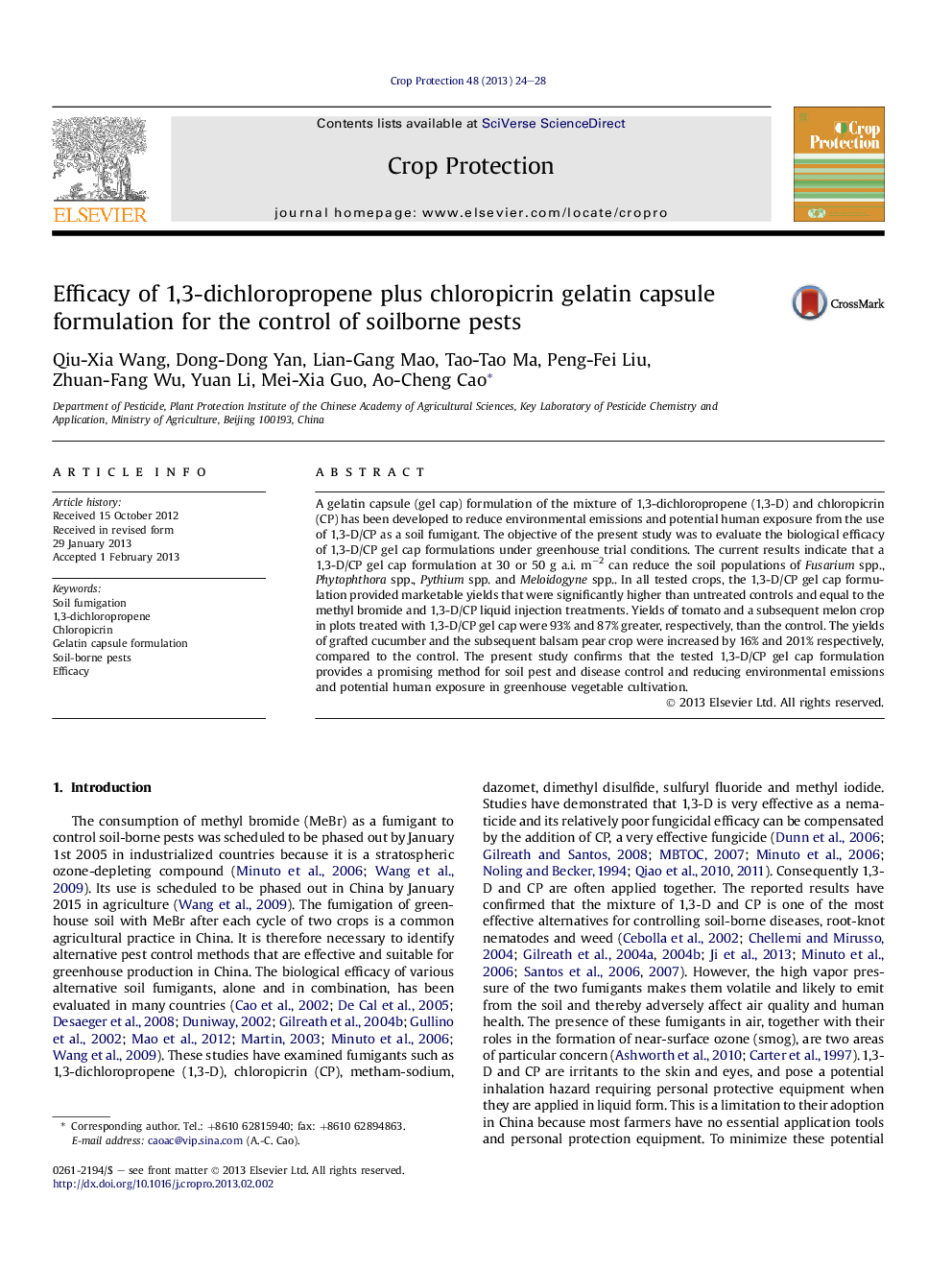| Article ID | Journal | Published Year | Pages | File Type |
|---|---|---|---|---|
| 4506261 | Crop Protection | 2013 | 5 Pages |
A gelatin capsule (gel cap) formulation of the mixture of 1,3-dichloropropene (1,3-D) and chloropicrin (CP) has been developed to reduce environmental emissions and potential human exposure from the use of 1,3-D/CP as a soil fumigant. The objective of the present study was to evaluate the biological efficacy of 1,3-D/CP gel cap formulations under greenhouse trial conditions. The current results indicate that a 1,3-D/CP gel cap formulation at 30 or 50 g a.i. m−2 can reduce the soil populations of Fusarium spp., Phytophthora spp., Pythium spp. and Meloidogyne spp.. In all tested crops, the 1,3-D/CP gel cap formulation provided marketable yields that were significantly higher than untreated controls and equal to the methyl bromide and 1,3-D/CP liquid injection treatments. Yields of tomato and a subsequent melon crop in plots treated with 1,3-D/CP gel cap were 93% and 87% greater, respectively, than the control. The yields of grafted cucumber and the subsequent balsam pear crop were increased by 16% and 201% respectively, compared to the control. The present study confirms that the tested 1,3-D/CP gel cap formulation provides a promising method for soil pest and disease control and reducing environmental emissions and potential human exposure in greenhouse vegetable cultivation.
► 1,3-D/CP gel cap formulation is a new technology. ► A field experimental design was used to evaluate the efficacy of 1,3-D/CP gel cap. ► The study confirms 1,3-D/CP gel cap provides a promising method for pest control. ► Soilborne pests were Fusarium spp., Phytophthora spp. & Pythium spp. and nematodes. ► Greenhouse vegetables in our study were mainly focusing on tomato and cucumber.
